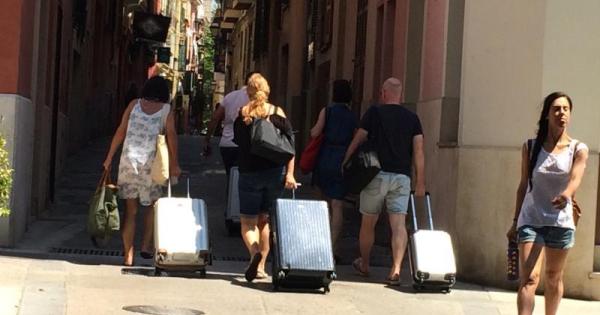More than 1.1 million tourist rental beds in popular holiday destinations across Spain like Mallorca could become unavailable from August if the mandatory registrations in the Ministry of Housing and Urban Agenda’s Single Register of Tourist Accommodation are not completed, forcing online portals to remove listings that do not include the Rental Registration Number (NRA). These places represent 87% of the total national supply of active tourist accommodation (VUTs) in Spain this summer, as of 15 July.
This is according to data intelligence from Mabrian, a global tourism intelligence and destination advisory firm, after analysing the potential impact on the accommodation supply throughout the country of the agreement between the Spanish Ministry of Housing and Airbnb, which requires the online platform to remove all listings that do not include the NRA as of 1 August, after a period of ten working days to correct their listings, following notification by the platform.
The Single Register of Tourist Accommodation, in force since 1 July, takes precedence over regional and municipal regulations, which means that no property can legally operate as tourist accommodation if it is not registered in the state register, even if it has a regional or municipal licence. Mabrian, part of The Data Appeal Company – Almawave Group, analysed the listings published on Airbnb in mid-July in the 17 autonomous communities and two autonomous cities of Spain, comparing how many tourist properties report having a local licence and how many have already included the NRA in their advertisements. The results indicate that, as of 15 July, only 13% of the total tourist accommodation available in Spain had completed the state registration and updated their listing with the corresponding number.
‘Although hosts and advertisers of tourist rental properties had been informed of the deadlines and the mandatory nature of the Single Register of Tourist Accommodation in July, most only began the process when it came into force, which has generated a large volume of applications in a very short period of time,’ said Carlos Cendra, partner and director of marketing and communications at Mabrian.
The regional analysis reveals notable differences between communities. In Andalusia, the region with the most tourist properties in the country, only 10.2% of the properties listed on Airbnb have an NRA, despite the fact that 83% already have regional licences. In Catalonia, the third largest region in terms of supply, only 8% of advertised properties have incorporated the state code, although 75.6% have local or regional permits.
Similar scenarios are repeated in the Valencian Community, the Canary Islands and the Balearics, also among the regions with the highest concentration of VUTs, where 15.2%, 16.8% and 12.2% of available listings already include the State Registration number. According to the most recent data, 67% of tourist rental advertisements in Spain include a local or regional licence, but only 20% of these properties have completed the process to obtain the state code. In practice, this means that ‘more than 1.1 million tourist rental places are currently outside the current regulations and could be withdrawn from the market’, warns the Mabrian spokesperson.
‘The figures show that the incorporation of VUTs into the Single Register is underway, but it is gradual and will take time,’ says Cendra. ‘In any case, the possibility of losing such a significant part of the tourist accommodation supply, in the middle of the summer season, must be analysed not only from the point of view of carrying capacity, but also for its impact on the traveller experience and on local economies that depend on the summer season’.
One aspect worth highlighting is that the State Register of Tourist Accommodation is promoting the regularisation of supply in autonomous communities where there is a higher proportion of listings that do not report municipal or regional licences. For example, in the Community of Madrid, of the nearly one-third of the supply available on Airbnb that reported a regional or municipal licence, 57.7% has already incorporated the state code. Significant progress has also been made in Galicia, Aragon, Asturias, Cantabria, Navarre and La Rioja, where more than 30% of the listings that already reported a licence have obtained the NRA, equivalent to between 50% and 60% of the total listings available in these communities.
